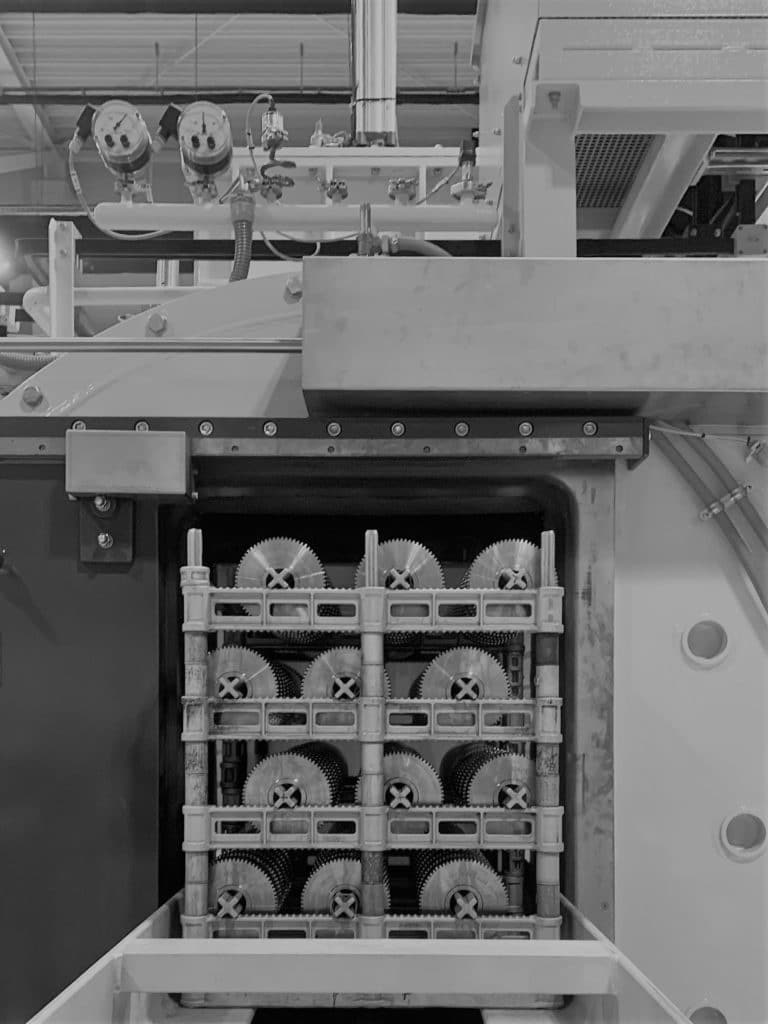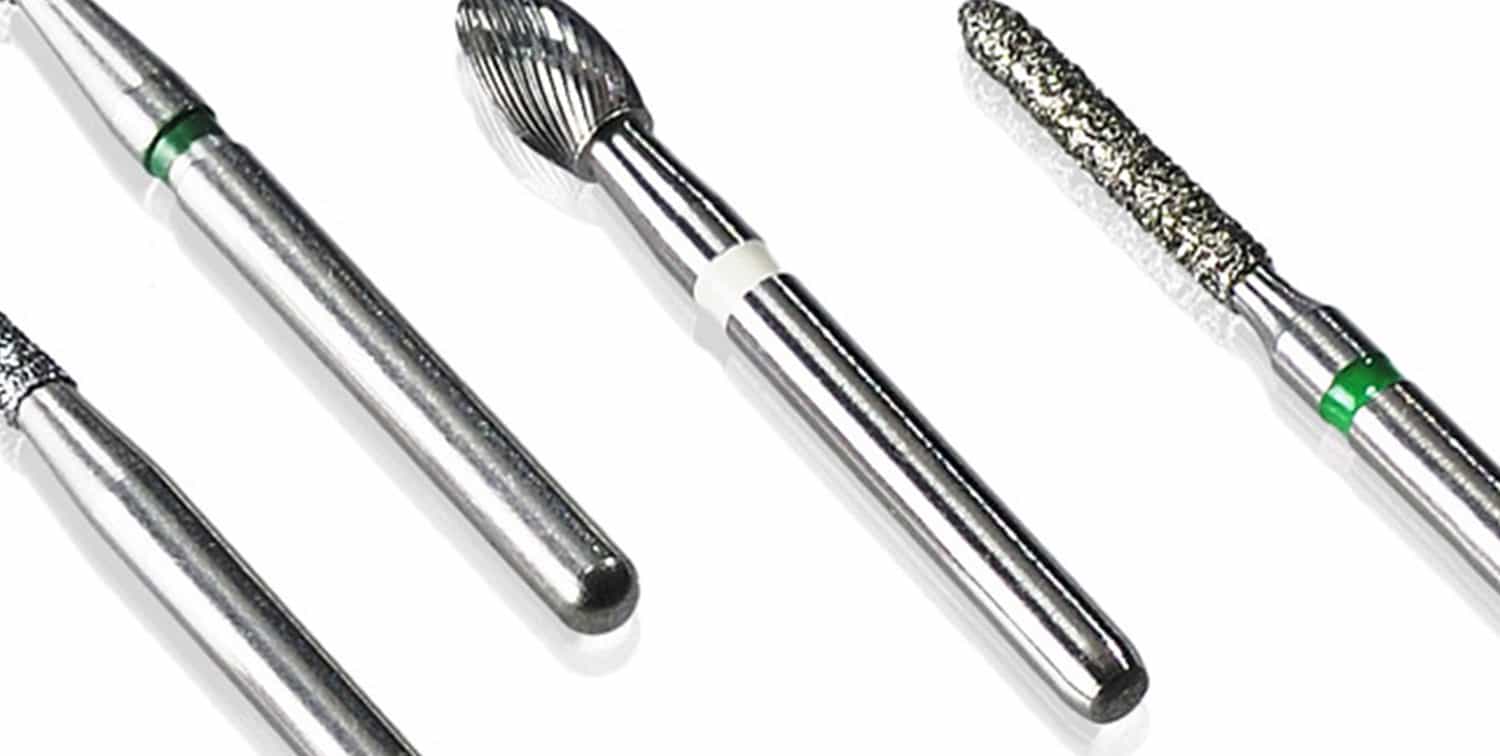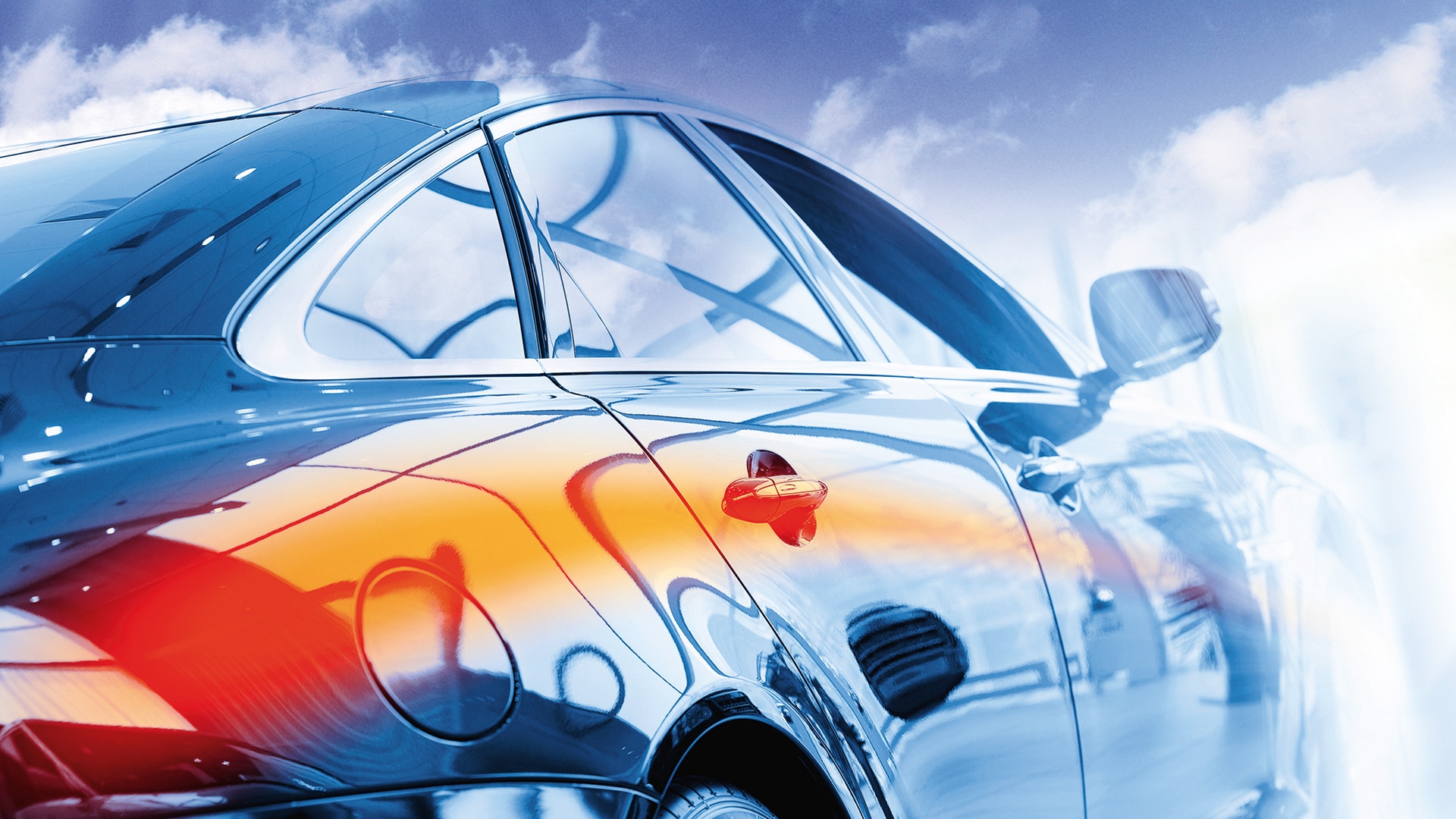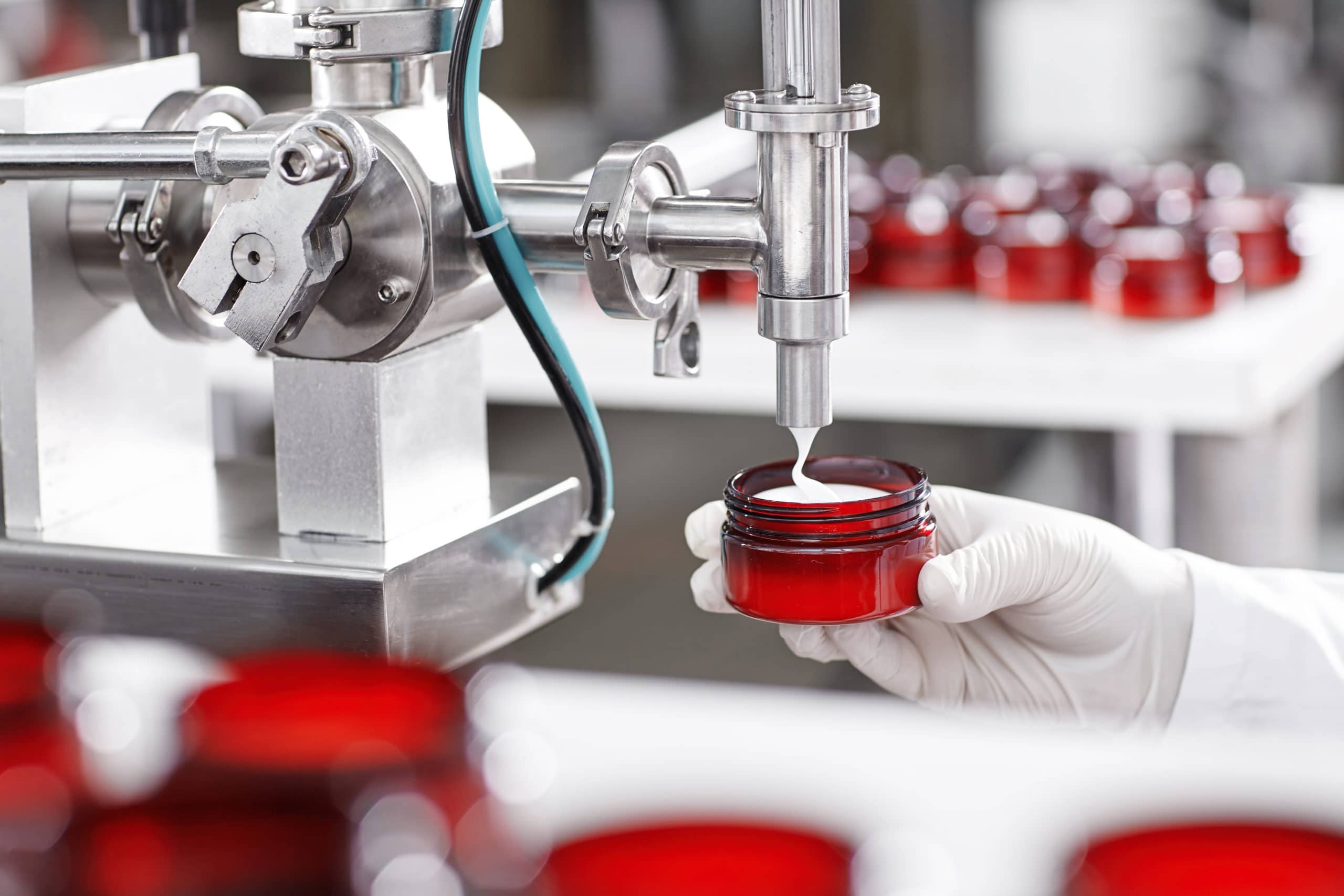what is low pressure carburizing?
The low pressure carburizing (LPC) process, also known as vacuum carburizing, is a thermochemical heat treatment in which steel parts are heated to temperatures usually in the range of 900-1000°C and placed in a carburizing atmosphere. It is an alternative technology to traditional carburizing in a protective gas (atmospheric).
Low pressure carburizing offers a clean and modern approach to carburizing. This heat treatment requires real precision and allows for minimal deformation of the original component during carburizing, but always in accordance with the existing residual stress state of the component.
low pressure carburizing process
The purpose of carburizing is to enrich the surface layer with carbon and thus increase hardness and abrasion resistance while maintaining a malleable core. Immediately after carburizing, hardening and tempering is usually carried out. In contrast to traditional carburizing, vacuum carburizing has a number of advantages resulting from both the carrier gases used – C2H2/acetylene – and the environment in which it is carried out – a vacuum furnace. It is environmentally friendly – no CO2 emissions from the process.

advantages of low pressure carburizing
Tool steel in particular benefits from low-pressure carburizing, as the process results in very wear-resistant surfaces. This is ideal for toolmaking.
The most important advantages are:
- No oxidation at the grain boundaries
- Narrower tolerance range of case hardening depth – lower scattering of results
- Stability and repeatability of results
- Accurate carburizing of narrow bores, including blind holes
- Minimization of quenching deformations – resulting from the use of gas as a quenching medium, although oil quenching is also possible.
- Increased production efficiency due to the ability to run processes at higher than conventional temperatures, i.e. 980 °C and higher
- Clean surface (silver-metallic), no oxidation
- Environmentally friendly – no CO2 emissions from the process
suitable steels for low pressure carburizing
Higher alloyed case-hardening steels that still have a sufficient cooling rate during nitrogen quenching. Less suitable for unalloyed and low-alloy steels.
fields of application
Transmission gears and shafts, particularly in the automotive sector as well as for industrial transmissions and similar applications. High-pressure injection components for combustion engines. Bearing shells and rings for plain and ball bearings.
benefits from our services, from the idea to series production
- Developing individual innovations
- Clarify detailed questions
- Support from the idea to series production
- First-class support
- Highest quality – whether small or large series
- Certified according to DIN EN ISO 9001:2015, VDA 6.1:2016 and ISO 13485:2016
frequently asked questions – low pressure carburizing
Low pressure carburizing is a process in a vacuum furnace, i.e. carburization does not take place in an atmosphere containing carbon (endogas) with oxygen. As a result, there is no edge oxidation in low-pressure carburizing.
There is no rule here. The process time depends on the treatment temperature, the component geometry and the carburization depth to be achieved.
Special post-treatments are not required. In the case of quenching under nitrogen, a final cleaning is required.
industries
process locations
Any questions? Contact us directly or select a process location near you.
Dunningen
Germany 48.2249668.5003521 info.dunningen@aalberts-st.com +49 7403 92907-0 show locationKalisz
Poland 51.736470518.03159 info.kalisz@aalberts-st.com +48 798 804 003 show locationLetchworth
United Kingdom 51.9887569-0.2038797 info.letchworth@aalberts-st.com +44 1462 472100 show locationUnsere Verfahren
Wir bieten weltweit alle Arten von Wärmebehandlungsprozessen an. Unsere Anlagen sind logistisch eng miteinander verknüpft, so dass Ihnen alle Verfahren zur Verfügung stehen. Erfahren Sie mehr zu unseren Wärmebehandlungsverfahren.
Heiß-Isostatisches Pressen (HIP) dient der Beseitigung von Porosität. Sie benötigen bei Lötverbindungen eine hohe mechanische Haltbarkeit und Unempfindlichkeit bei hohen Temperaturen? Wir bei Aalberts surface technologies bieten die Lösung durch Hartlöten (brazing).
Polymerbeschichtungen können auf viele Grundmaterialien aufgebracht werden und bieten lang anhaltenden Schutz. Sie sind mechanisch besonders gut mit dem Untergrund verankert und bieten verbesserte Gleiteigenschaften und/oder hohe Verschleißfestigkeit.
Mit 40 Jahren Erfahrung in der kontinuierlichen Veredelung von reel to reel können Sie sich auf Aalberts surface technologies verlassen, um innovative Lösungen zu finden. Unser Service umfasst Trommelgalvanik, kontinuierliche selektive Galvanik und Gestellgalvanik.
Fast alle metallischen Grundwerkstoffe können mit unseren selbstentwickelten und patentierten Verfahren durch Oberflächenbeschichtungen in ihren Eigenschaften optimiert werden, egal ob sie besonders hart, glatt, verschleißfest oder korrosionsbeständig sein sollen.

Discover our services
We offer all types of heat treatment processes. Our facilities are closely interlinked in terms of logistics, which means that all processes are available to you. For a complete list and description of heat treatment technologies please select the button.
Hot isostatic pressing (HIP) is used to eliminate porosity. Do you need high mechanical durability and insensitivity to high temperatures for solder joints? We at Aalberts surface technologies offer the solution through brazing.
Polymer coatings can be applied to a wide variety of base materials and offer long-lasting protection. They are particularly well anchored mechanically to the substrate. Additional enhancement layers allow non-stick coatings to be combined with improved sliding properties and/or high wear resistance.
With 40 years of experience in continuous reel to reel finishing, you can depend on Aalberts surface technologies to find innovative solutions that other companies might say are impossible. Our service includes barrel plating, continuous selective plating and rack plating.
Almost all metallic base materials can have their properties optimised by surface coatings using our proprietary and patented processes, regardless of whether they should be particularly hard, smooth, wear-resistant or corrosion-resistant.

The Aalberts websites use cookies (read more) to analyse website usage and improve usability. We also use third party tracking-cookies to measure user preferences, enable content sharing on social media and interest-based advertising. If you hit 'accept' you allow to us to place the different types of cookies.
privacy overview
| Cookie | Duration | Description |
|---|---|---|
| cookielawinfo-checkbox-analytics | 1 year | This cookies is set by GDPR Cookie Consent WordPress Plugin. The cookie is used to remember the user consent for the cookies under the category "Analytics". |
| cookielawinfo-checkbox-necessary | 1 year | This cookie is set by GDPR Cookie Consent plugin. The cookies is used to store the user consent for the cookies in the category "Necessary". |
| cookielawinfo-checkbox-others | 1 year | This cookie is set by GDPR Cookie Consent plugin. The cookie is used to store the user consent for the cookies in the category "Others". |
| cookielawinfo-checkbox-performance | 1 year | This cookie is set by GDPR Cookie Consent plugin. The cookie is used to store the user consent for the cookies in the category "Performance". |
| elementor | never | This cookie is used by the website's WordPress theme. It allows the website owner to implement or change the website's content in real-time. |
| Cookie | Duration | Description |
|---|---|---|
| cookielawinfo-checkbox-functional | 1 year | The cookie is set by GDPR cookie consent to record the user consent for the cookies in the category "Functional". |



